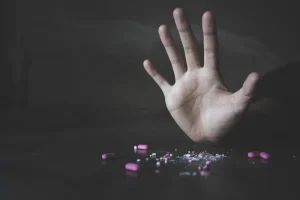
Dissociative personality factors may predispose people toward developing HPPD and DP/DR. A particular risk factor may be trait absorption, or a tendency to be preoccupied with internal mental images and lost in daydreams and fantasies. Someone may report HPPD after only a single, low-dose experience with a tested drug, including even a microdose. Some report it after a handful of trips, while others don’t experience it until after many more. They may then be more significant according to certain triggers, such as sleep deprivation or the use of drugs such as caffeine and cannabis. In other cases, HPPD symptoms can take effect in sudden episodes.
Altered Sense of Time

Lofexidine HPPD symptom (0.2–0.8 mg/day) is a sympatholytic centrally acting α2 presynaptic adrenergic agonist that showed similar efficacy in some cases 23,65,66. When the person with HPPD experiences a flashback, loved ones can help them feel safe and remind them that symptoms are temporary. They can also ensure that the HPPD vision symptoms don’t put the person’s safety at risk. Behavioral or talk therapy may help individuals cope with complications of HPPD, such as co-occurring anxiety or depression.

How is HPPD diagnosed?
Type 1 HPPD is typically experienced as brief, random “flashbacks.” On the other hand, type 2 HPPD is generally long term, disturbing, and pervasive. Additional research suggests that people with previous traumatic experiences may be more affected by HPPD. This hypothesis says that strong memories could be more easily accessed with psychedelic drug use and mistaken as flashbacks. Bipolar disorder is characterized by extreme mood swings, including manic episodes (elevated mood, increased energy) and depressive episodes (low mood, fatigue). Hallucinations or delusions may occur during severe manic or depressive episodes.
Symptoms

Read on to learn more about this disorder and what can be done to treat it. What sets HPPD apart is the re-experiencing of visual disturbances—often referred to as “flashbacks”—even when the individual is no longer under the influence of the drug. These disturbances may include halos around objects, trailing images, or intricate geometric patterns. Unlike typical flashbacks, which are brief and sporadic, HPPD symptoms can persist for weeks, months, or even years. HPPD disorder is a mental health condition that arises after the use of hallucinogenic drugs, typically lysergic acid diethylamide. Also known as LSD, this drug is a clear or white material derived from a fungus that grows on grains.

What to Do During an HPPD Episode
This is part of our ongoing commitment to ensure FHE Health is trusted as a leader in mental health and addiction care. Because the condition affects only a small number of people, there’s much we don’t understand about what is Oxford House HPPD. Doctors may try different types of medications until a successful treatment is found. Benzodiazepines, such as Xanax (alprazolam) or Klonopin (clonazepam), appear to be the most effective treatment.

- He has served as a clinical director, clinician, and supervisor for mental health pro- grams in acute, sub-acute, and outpatient facilities, and in primary care.
- Apps for people with dyslexia may also be beneficial for those who have difficulty reading due to HPPD.
- However, reports have highlighted that other psychoactive drugs which aren’t classically psychedelic, such as MDMA, ketamine, and cannabis, can onset HPPD.
- Auditory experiences, like loud music at a concert, may be more intense than normal.
- Because taking psychoactive drugs, even single experiences can intensify symptoms of HPPD, people with HPPD are strongly recommended to abstain from all psychoactive drugs, in particular cannabis.
Mood swings, reported by 35% of individuals with HPPD, involve sudden shifts in emotional states, ranging from euphoria to sadness or irritability. These unpredictable changes can make emotional regulation difficult. Mood swings may be linked to altered neurotransmitter activity, particularly involving serotonin and dopamine, which are essential for mood stabilization. Many HPPD sufferers find that continuing to fixate on symptoms only raises their distress and how noticeable the perceptual changes are.
Leave a Reply